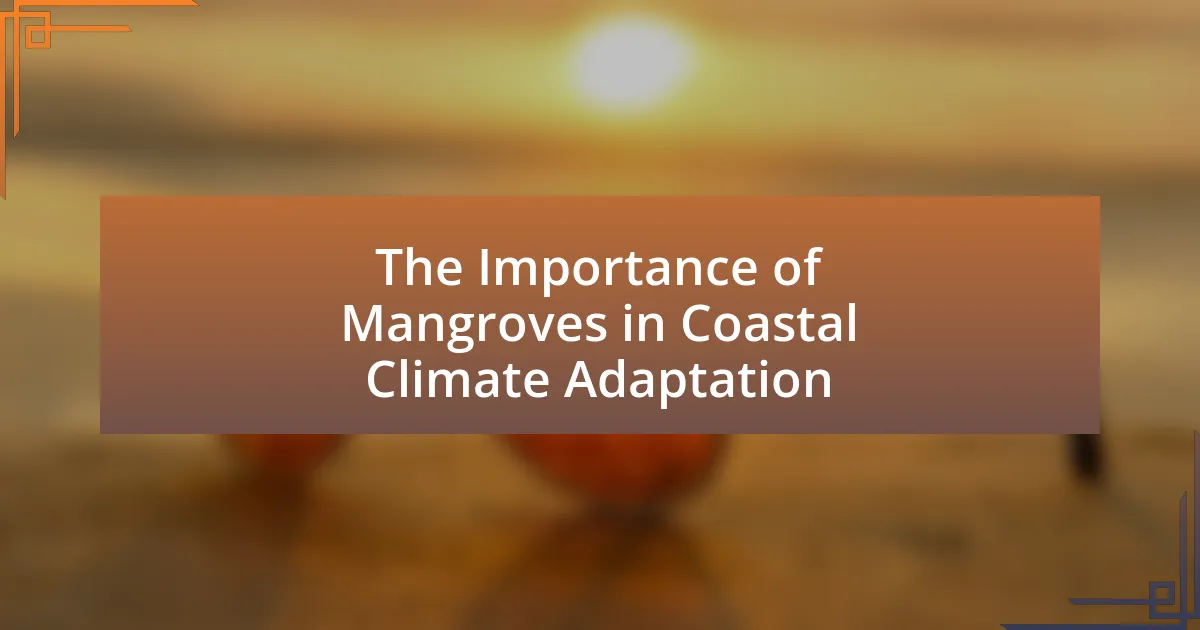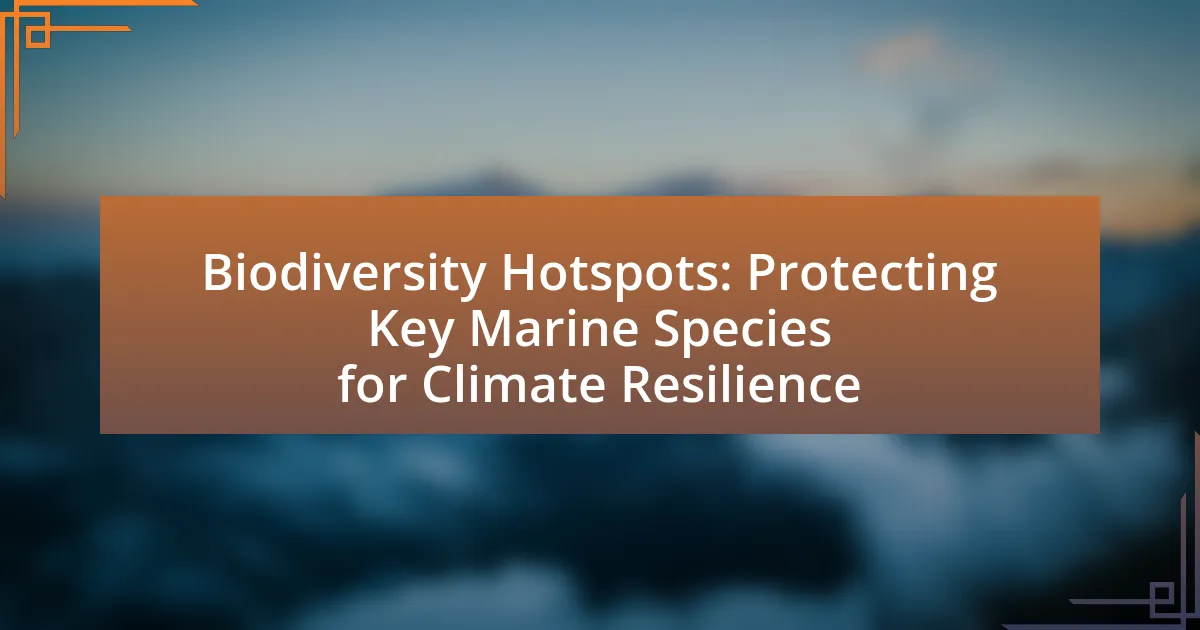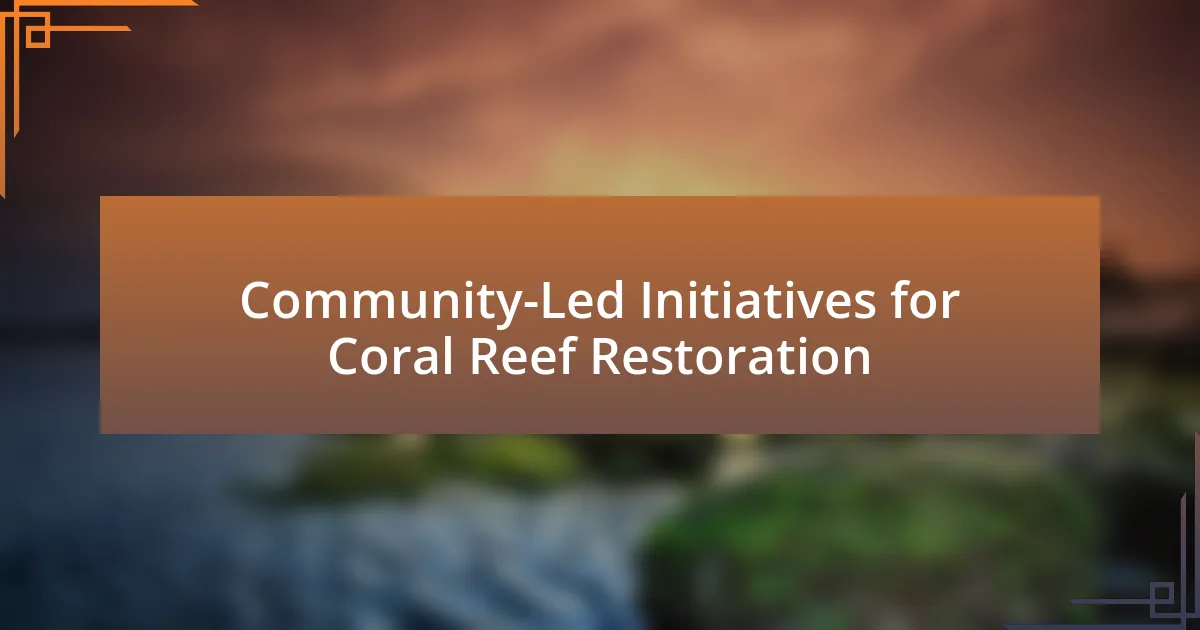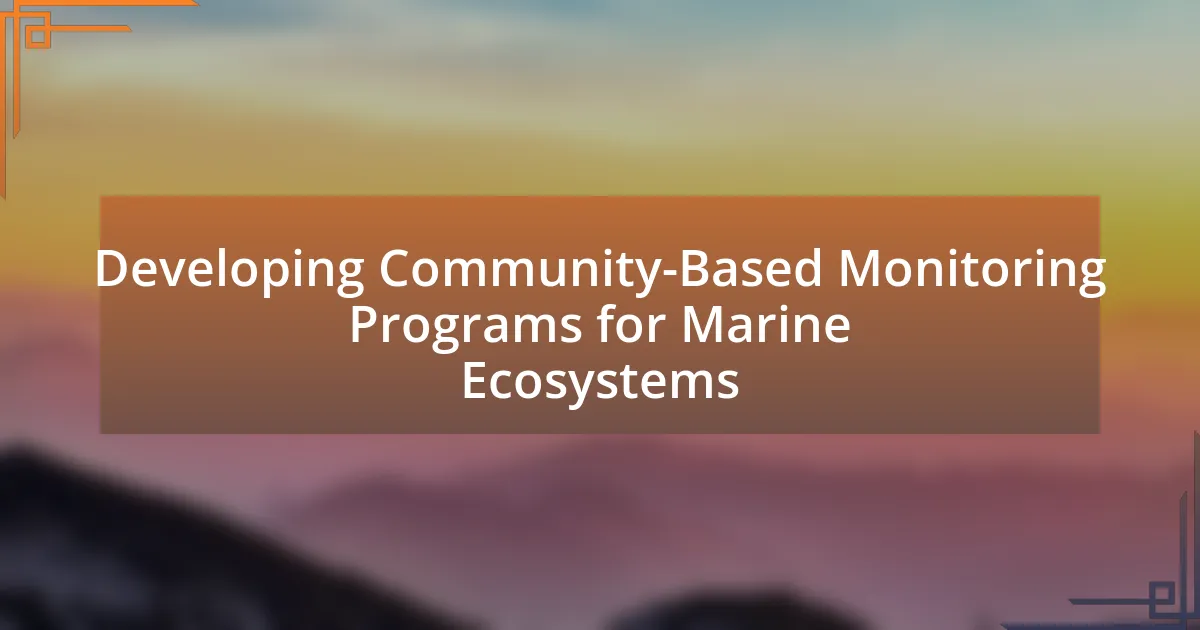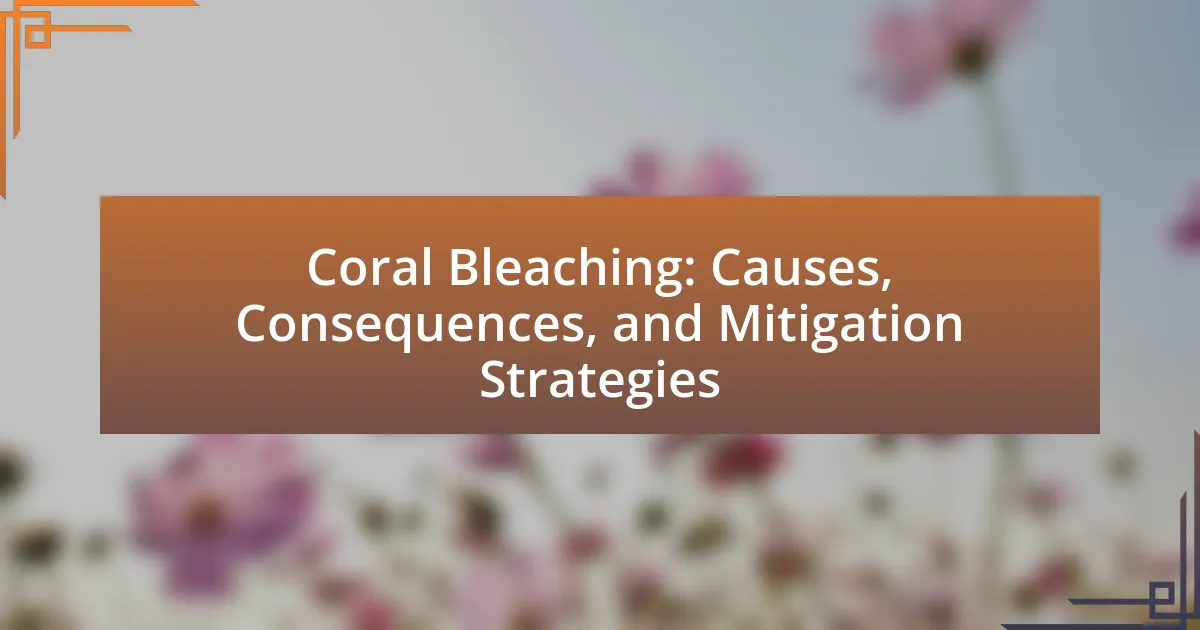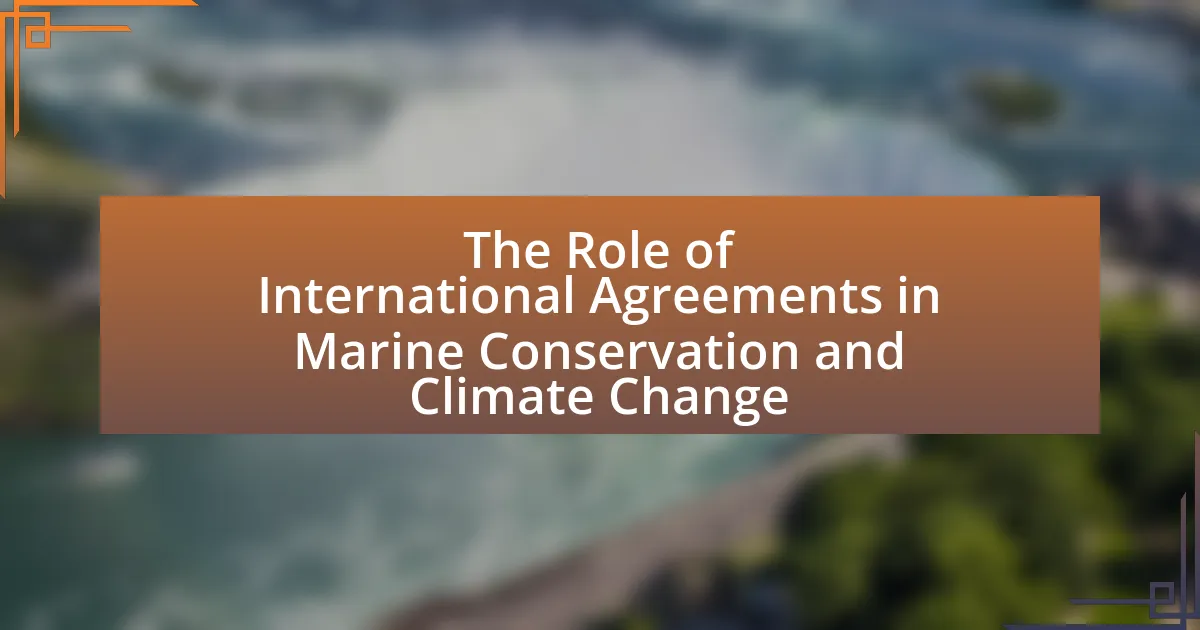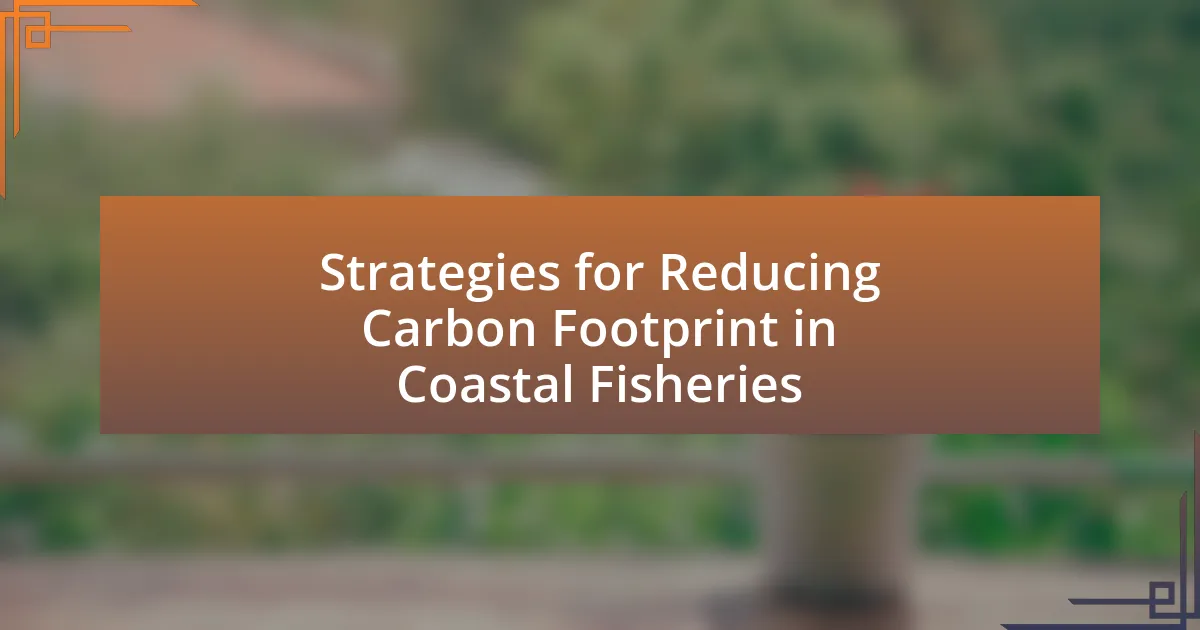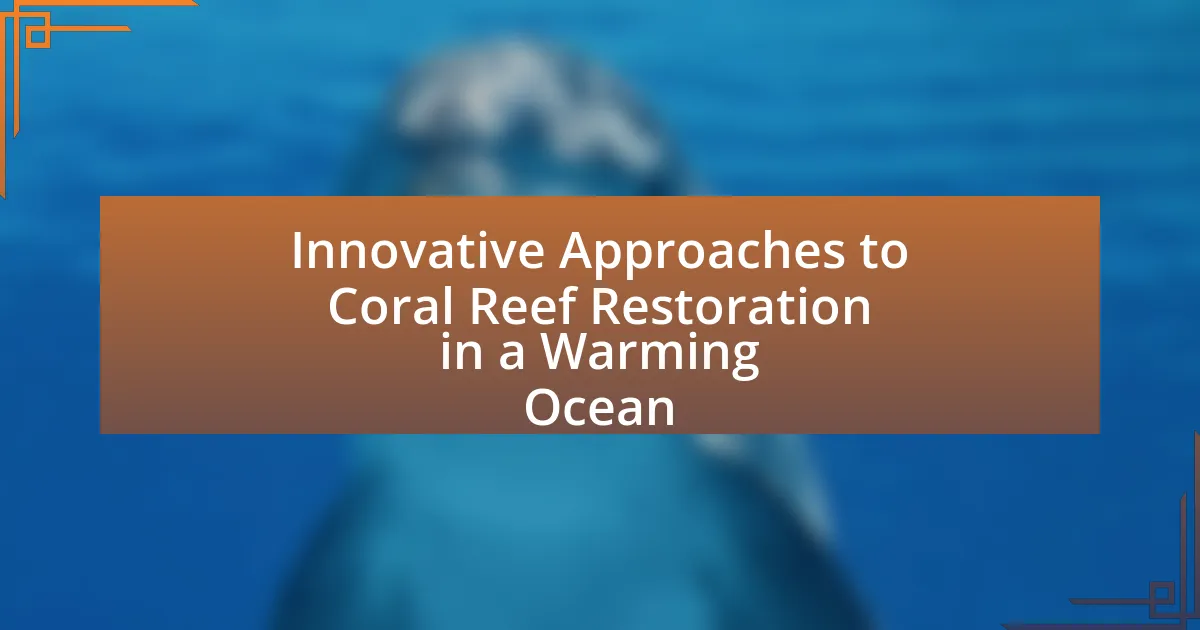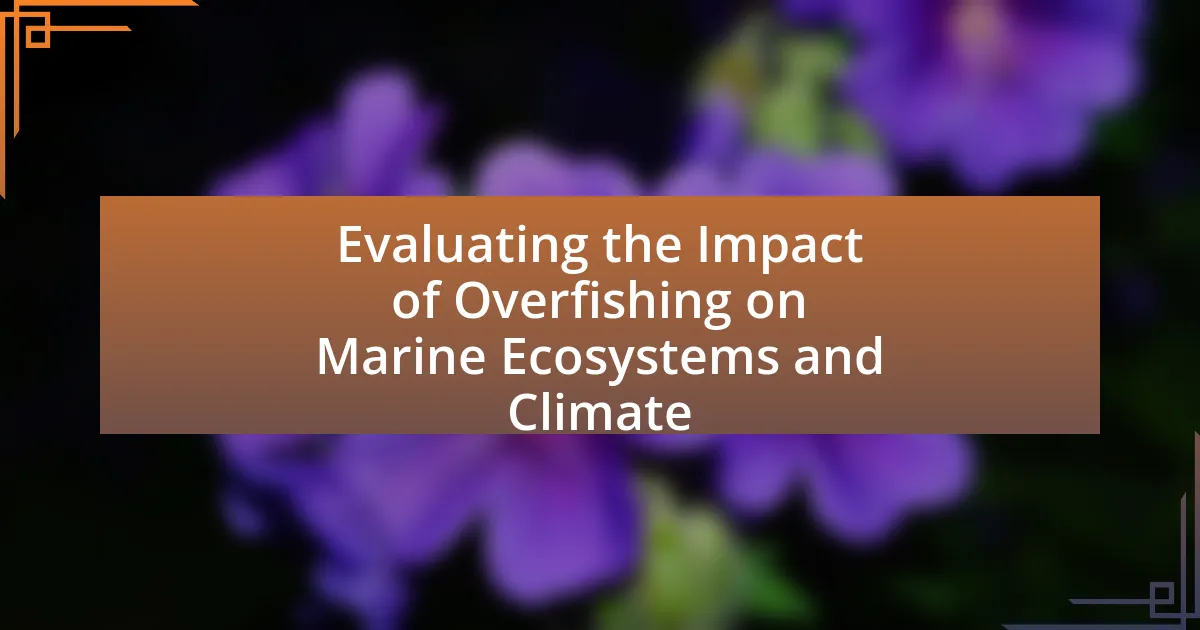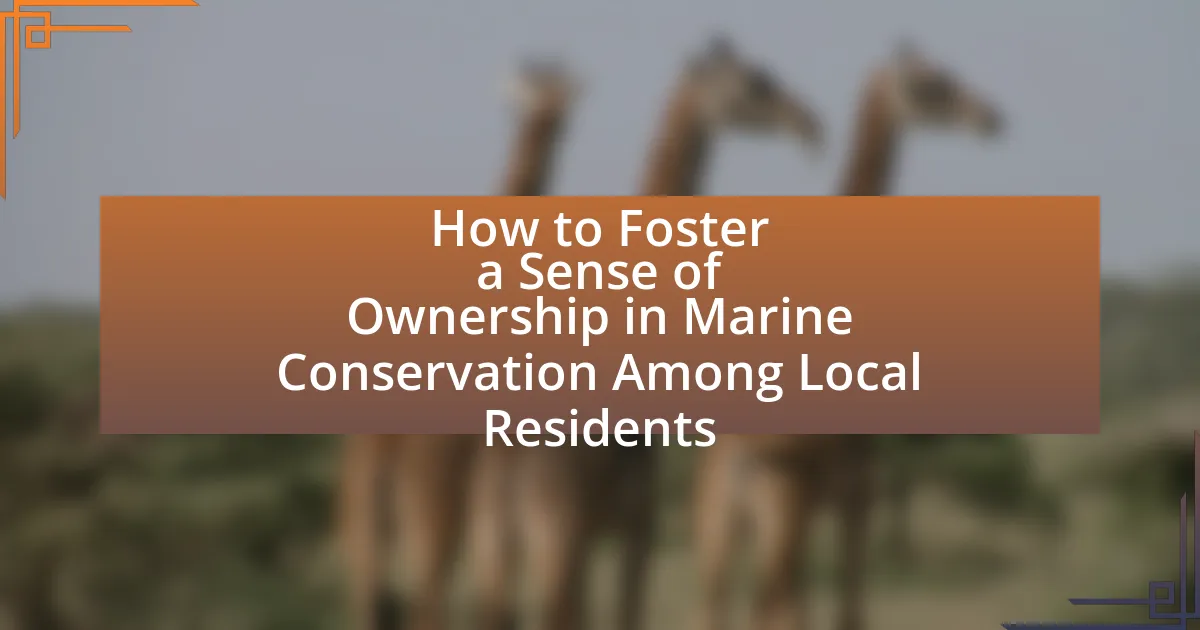Mangroves are coastal ecosystems comprised of salt-tolerant trees and shrubs that thrive in intertidal zones, playing a vital role in coastal climate adaptation. They act as natural barriers against storm…
Biodiversity Hotspots: Protecting Key Marine Species for Climate Resilience
Biodiversity hotspots are regions rich in endemic species that face significant threats from human activities, making them crucial for marine species and ecosystem health. This article explores the importance of…
Community-Led Initiatives for Coral Reef Restoration
Community-led initiatives for coral reef restoration are collaborative efforts where local populations engage in the conservation and rehabilitation of coral ecosystems. These initiatives encompass activities such as coral gardening, reef…
Developing Community-Based Monitoring Programs for Marine Ecosystems
Community-Based Monitoring Programs for Marine Ecosystems are initiatives that involve local communities in the observation and assessment of marine environments, enhancing conservation efforts through local stewardship and awareness. These programs…
Coral Bleaching: Causes, Consequences, and Mitigation Strategies
Coral bleaching is a critical environmental phenomenon characterized by the loss of color in corals due to stress factors such as elevated sea temperatures, pollution, and changes in water chemistry.…
The Role of International Agreements in Marine Conservation and Climate Change
International agreements are essential for marine conservation and addressing climate change, as they provide frameworks for cooperation among nations to protect marine ecosystems and mitigate climate impacts. Key agreements such…
Strategies for Reducing Carbon Footprint in Coastal Fisheries
The article focuses on strategies for reducing the carbon footprint in coastal fisheries, emphasizing sustainable fishing practices, fuel efficiency optimization, and enhanced aquaculture systems. Key methods include implementing catch limits,…
Innovative Approaches to Coral Reef Restoration in a Warming Ocean
The article focuses on innovative approaches to coral reef restoration in the context of a warming ocean, highlighting methods such as coral gardening, assisted gene flow, and the development of…
Evaluating the Impact of Overfishing on Marine Ecosystems and Climate
The article evaluates the impact of overfishing on marine ecosystems and climate, highlighting how excessive fish removal disrupts food webs, reduces biodiversity, and contributes to climate change. It discusses the…
How to Foster a Sense of Ownership in Marine Conservation Among Local Residents
The article focuses on fostering a sense of ownership in marine conservation among local residents, emphasizing the importance of community engagement, empowerment, and education. It outlines how local involvement is…
